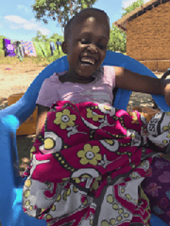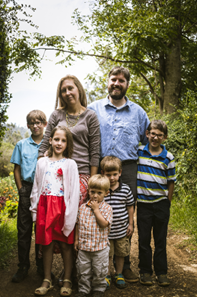Whether mobility is considered a privilege or a right, some people don’t even have the chance to consider this notion in some parts of the world. Access to wheelchairs and apparatuses are very hard to come by in most developing countries. According to the Wheelchair Foundation, it is estimated that at least 100 million children, teens and adults worldwide need a wheelchair but cannot afford one. Moreover, some of the international organizations believe that the need for wheelchairs could be as high as 6% of the population in many developing countries.
Luckily, organizations such as Alternatives in Motion, Chariots of Hope, American Mobility Outreach and Direct Relief International help to create more awareness to the mobile needs and abilities of people with physical disabilities (“Wheelchair Foundation”). These organizations also help to create hope, mobility and independence through wheelchair donations and providing wheelchairs to those in need that cannot afford to purchase one.
Wheelchairs for Children in Kenya
In the coastal villages of Kenya, many children are currently suffering from motor limitations due to severe cognitive and physical disabilities. The children are often shut out from the outside world, are stuck in beds or in dark environments all day and the thought of a social life for them is almost non-existent. Also, the children become very dependent on their caretakers to take them wherever they need to go, which adds more stress to both the children and the caretakers. However, with the aid of the World Forgotten Children Foundation (WFCF), the amount of $5,731 was funded to The Imani Project to help purchase custom wheelchairs and other apparatuses for children living with severe cognitive and physical disabilities in rural parts of Kenya.

Through the funding, The Imani Project was able to provide 12 children with customizable apparatuses and wheelchairs to aid in their mobility. Among the 12 children that were helped was a 12-year-old orphan named Doris Wilson. Doris lives in the Mnzimoja village of Kenya with her grandmother and four siblings. Currently, Doris has both cognitive and physical disabilities. Additionally, she also has hydrocephalus, a paralyzed arm in a permanent hook position, and she can’t speak or move by herself. Upon receiving her wheelchair, Doris smiled and laughed widely as the wheelchair was fitted to her exact measurements and the wheelchair also included a seatbelt and side support. Like Doris, other young children in Kenya like Elvis Chavatsi, Peter Karisa, James Garama, Robert Masha, John Wanje, Helen Mawa, the Ali Sisters (Neema and Miriam), Philip Kazungu, Dennis Kazungu Kenga and Everlynn Kadzo Benjamin all benefited from the customizable wheelchairs/apparatus through the Imani Project. The non-profit organization in Kenya works at improving the living conditions of children with disabilities and provides them with a new outlook on life.
The Imani Project has since expressed their gratitude to the WFCF stating “The Imani Project is extremely grateful for the funds given to us by the World Forgotten Children Foundation. With your help, we have created a miracle for these children and their caregivers.”
Background: The Imani Project

The mastermind behind the successful non-profit organization is none other than the Imani Project Founder and Executive Director, Marlene Anderson. In 2004, Marlene worked as a social worker near a village in the Sabaki River Delta of Kenya. On the trip, Marlene witnessed illness, death, poverty and abandoned children due to the HIV/AIDS pandemic in the rural parts of Kenya. Since the visit, she has started the Imani Project which is a 501 (c)3 non-profit organization that is based in Portland, Oregon with operations managed in Kenya. According to The Imani Project, the project is a partnership between Americans and Africans; and the primary mission of the organization is to empower Kenyan villagers to be future educators, advocates, caregivers and HIV/AIDS activists in the community. The project is also dedicated to improving the health and well-being of children with limited mobility.
The Wheelchair Maker

After looking far and wide for Nairobi wheelchair makers, the Imani Project recruited an occupational therapist named Luke McAuley who is known for his superior knowledge in pediatric customizable wheelchairs. Luke was responsible for fitting children in wheelchairs, meeting their specific needs, customizing their wheelchairs with their proper measurements, adding seatbelts, side supports and leaving a lasting smile on the children’s faces.
"It is a great feeling for me to be able to provide someone with appropriately fitting mobility devise as it not only provides them with the potential to explore their environment more, prevents injury and treats deformities, but it also allows me to have an impact in providing dignity to whom they are as individuals. It also brings light to the needs and blessing that children with special needs can be to the community. It is especially special when a child who has been confined to the floor on the inside of a hut all of a sudden has this great huge smile because he or she is now on the same level and same orientation as all of their peers (it opens up a whole new world)!", said Luke McAuley.
The Imani Project founder Marlene Anderson, in addition to thanking WFCF, has also expressed her gratitude to Luke by saying “I would like to thank Luke McAuley for his dedication to our project, and his expertise in fitting each child with a customized pediatric wheelchair, making needed individual accommodations, as well as helpful suggestions. We are extremely grateful to Luke and his family.”
Sources:
W. (2019, February 14). Wheelchairs for Children in the Remote Coastal Villages of Kenya – The Imani Project. Retrieved from www.world-forgotten-children.org/project/wheelchairs-for-children-in-remote-coastal-kenya-villages-imani-project/63
Wheelchair Foundation. (n.d.). Retrieved May 16, 2019, from https://www.wheelchairfoundation.org/about/
Wheelchair Foundation. (n.d.). Retrieved May 16, 2019, from https://www.wheelchairfoundation.org/programs/more-organizations/
What is the Imani Project? (n.d.). Retrieved May 16, 2019, from https://imaniproject.org/what-is-the-imani-project/


